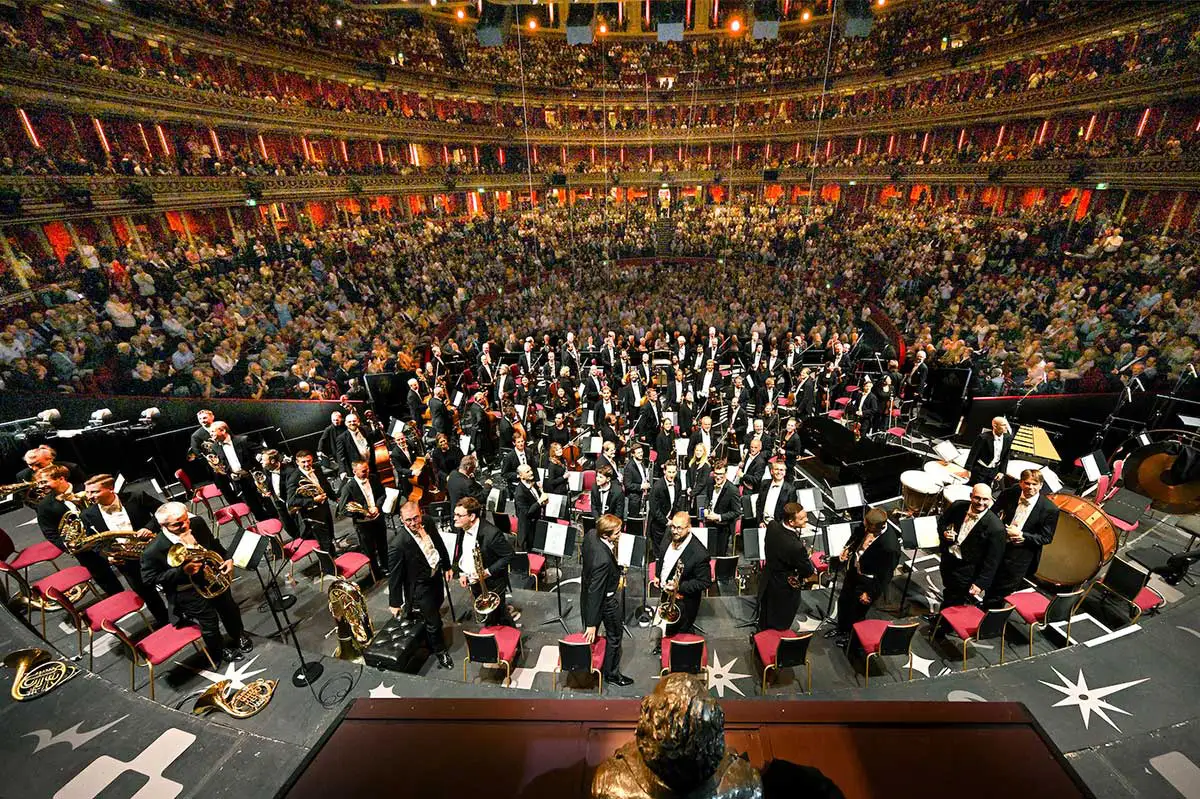Journalist, photographer and social commentator.
VIENNA PHIL’S HOMMAGE TO TCHAIKOVSKY VIA MOZART

The Vienna Philharmonic are regular guests at BBC Proms, and during their visits audiences expect to hear at least one quintessentially Viennese work. On their first night we were treated to Bruckner’s magnificent (unfinished) Symphony No.9, premiered in 1903 in Vienna (though not by the Vienna Phil!).
On the second night of the orchestra’s visit, Franz Welser-Möst conducted Mozart’s Symphony No.38 in D major, premiered in 1787 by the composer himself in Prague – hence its nickname the Prague Symphony. However, the three-movement symphony was actually written in Vienna.
The Viennese-style introduction is portentous and promises to set up a dark mood (which isn’t followed through). The dark ‘patches’ and the shift to D minor hints at Mozart’s forthcoming opera, Don Giovanni. The Adagio and the first part of the Allegro resemble in all but name an operatic overture. (Many members of the Vienna Philharmonic also perform regularly in the Vienna State Opera Orchestra. )
With an orchestral jolt we skip into the movement’s Allegro, which was given the appropriate sense of joy by the musicians, though it lacked a sense of impertinence. Exceptionally long by Mozart’s standards, conductor Welser-Möst wisely opted not to include the movement’s second repeat.
The second movement – in sonata form – is easy-going and pastoral, though in this interpretation some darker clouds drifted over the almost Schubertian landscape. The Presto opens with the comic, breathless duet Aprite, presto, aprite from The Marriage of Figaro, obviously without the singing. Mozart quoted a short excerpt from his own opera, which very recently had been a triumph in Prague. The Bohemians appreciated Mozart’s music so much more than the Viennese. The finale is full of gaiety, virtuosity and delightful wind passages, yet there is no escaping the darkness lurking in the shadows. The Vienna Phil brought refinement, elegance, depth and vigour to the performance , but I could have done with a bit more cheekiness, energy and even grotesquerie – the qualities that so often define Mozart’s works of this period.

Tchaikovsky died just nine days after conducting the premiere of his Sixth Symphony. The official account stated that he had contracted cholera by drinking unboiled water at a local restaurant. Yet it’s more likely that he deliberately took poison, possibly because of the torment (and the pressure) he felt over his homosexuality. We will never know for certain – he left no suicide note. If Tchaikovsky did take his own life, it is tempting to read the Pathétique symphony as a lament to himself, much as Mozart appears to have written his own Requiem. However, we do know that he dedicated his Sixth Symphony’ to his nephew Vladimir ¨Bob¨Davydov, who may also have been his lover. In a letter to ¨Bob¨, Tchaikovsky admitted that the work’s programme would ¨remain an enigma to everyone¨. He considered it the most sincere of all his works.
The ominous bassoon solo in the opening minute of the Adagio leaves you in no doubt about where we’re heading – if not death, then it’s the anticipation of imminent death. It should be a matter of life and death to conduct this masterpiece.
Condutor Welser-Möst is having none of that mournful stuff in this movement. He seems to be more interested in the lovely melodies and the nobility of the Allegro non troppo. When he gets to the ffff climax it sounds like an implosion, perhaps to mask some of the earlier, rather bland colourings.
The second movement the Vienna Phil handles gracefully – sticking to the instructions in the score (Allegro con grazia). We don’t need reminding that we’re listening to one of the world’s best waltz orchestras that can play the waltz theme in 5/4 time without breaking a sweat.
In the third movement, Welser-Möst was in a real hurry, giving the march-scherzo an almost festive quality. It sounded more like two beats to the bar than the written four, with towards the end no sense of threat or violence. I did, however, appreciate how the conductor launched straight into the deeply tragic Adagio lamentoso, which carried an appropriately funereal character. No doubt Welser-Möst had the recently deceased Christoph von Dohnányi—one of the orchestra’s most beloved conductors and Welser–Möst’s predecessor in Cleveland—on his mind while leading the finale, and the half-minute of silence that followed the final (dying) notes felt profoundly meaningful.

During this concert I didn’t at any time feel that the Vienna Philharmonic was at the top of their musical game – without accusing them of coasting – and Franz Welser-Mölst never looked like he identified with Tchaikovsky’s masterpiece. It was all a little bit too controlled – beherrscht und fähig, as they say in Austria.
BBC Proms September 9 2025 Royal Albert Hall
The concert will be broadcast on BBC 4 at 8PM on Friday 12 September. The concert can also be found on BBC Sounds
If you’re looking for a recording of Tchaikovsky’s Pathétique, I can warmly recommend Carlo Maria Giulini’s interpretation with Philharmonia Orchestra (1959)